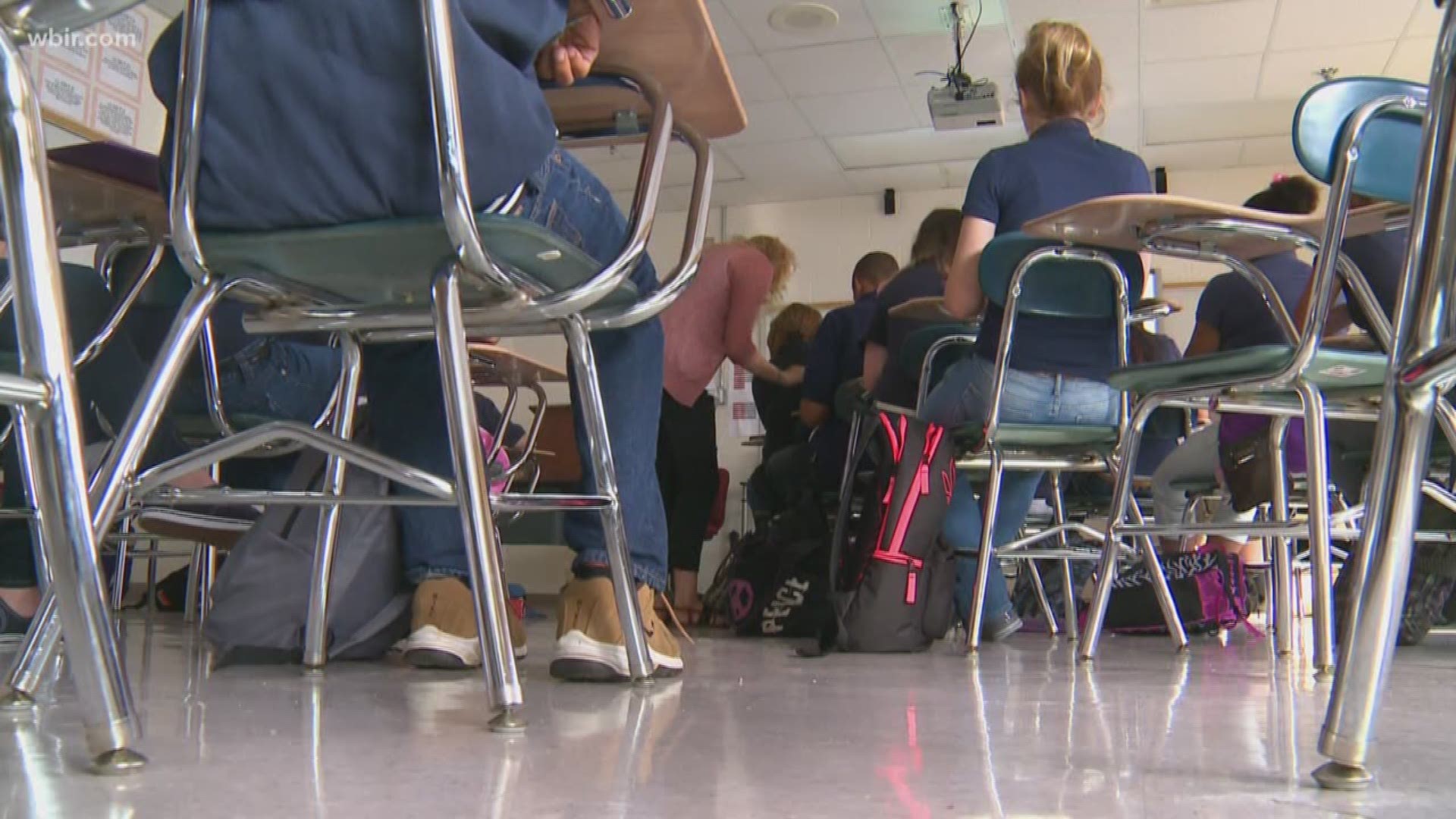NASHVILLE, Tenn. (AP) — Keeping neglected and abused children in family settings and out of institutions is a goal of child welfare systems nationwide, but it's an area where Tennessee has been losing ground.
In 2017, 77% of children entering foster care were placed either with relatives or foster families. That's down from 79% a decade before. The problem is greatest with teenagers, where Tennessee fell from placing 58% with families in 2007 to just under half in 2017.
That's according to a study released Tuesday from the Annie E. Casey Foundation's Kids Count project and a news release from the Tennessee Commission on Children and Youth, the Tennessee Kids Count affiliate.
Mike Leach, deputy commissioner for child programs at the Tennessee Department of Children's Services, said the opioid crisis has complicated Tennessee's efforts to reduce the number of children in foster care, which has seen a big increase since 2016.
The number of children in institutions or group homes includes infants born to addicted mothers who are treated in the hospital before they can be released to a foster home.
Leach said the state is also seeing an increase in teens with severe mental health issues who may have to spend time in treatment before they can be placed in a home.
"Some of the increase is due to opioids, some is just stressors the families have. ... Poverty and social issues have a profound effect on the child welfare system," he said.
According to the study, placement in family settings is important because group homes and institutions can compound the trauma of being separated from parents. They "may also fail to provide the individualized care and support that all children need to thrive," the study said.
Tennessee's 77% placement in family settings is below the national average of 86% in 2017. Leach said part of that is because, in Tennessee, Children's Services is responsible for juvenile justice. So children who are declared delinquent by a judge and sent to a group home or a treatment center inflate Tennessee's institutional placements. Children in detention centers are not counted.
While family settings in general are best for children, the report says placement with relatives or close friends helps children maintain vital connections and often keeps sibling groups together. Children are less likely to run away and the adults are more likely to maintain a caring relationship with the children as they grow into adulthood.
The report says states that are lagging behind in family placements should be able to improve by using strategies already proven successful elsewhere.
"Sixteen states plus the District of Columbia now place 90 percent or more of children in their child welfare systems in families, suggesting that others can do the same," the report states. "Four states — Maine, Mississippi, Nevada and New Jersey — placed at least 73 percent or more of teenagers and older youth in families."
Leach said a new federal law should help Tennessee keep more children out of foster care to begin with. The Family First Prevention Services Act that goes into effect in October will help states provide more outpatient mental health, substance abuse and parenting services to families where children could be at risk of entering foster care.
"We can always do better," Leach said, but he also noted improvements that aren't reflected in the report. Since 2017, Tennessee has seen a 2% decrease in the number of teens placed in group or institutional settings.

